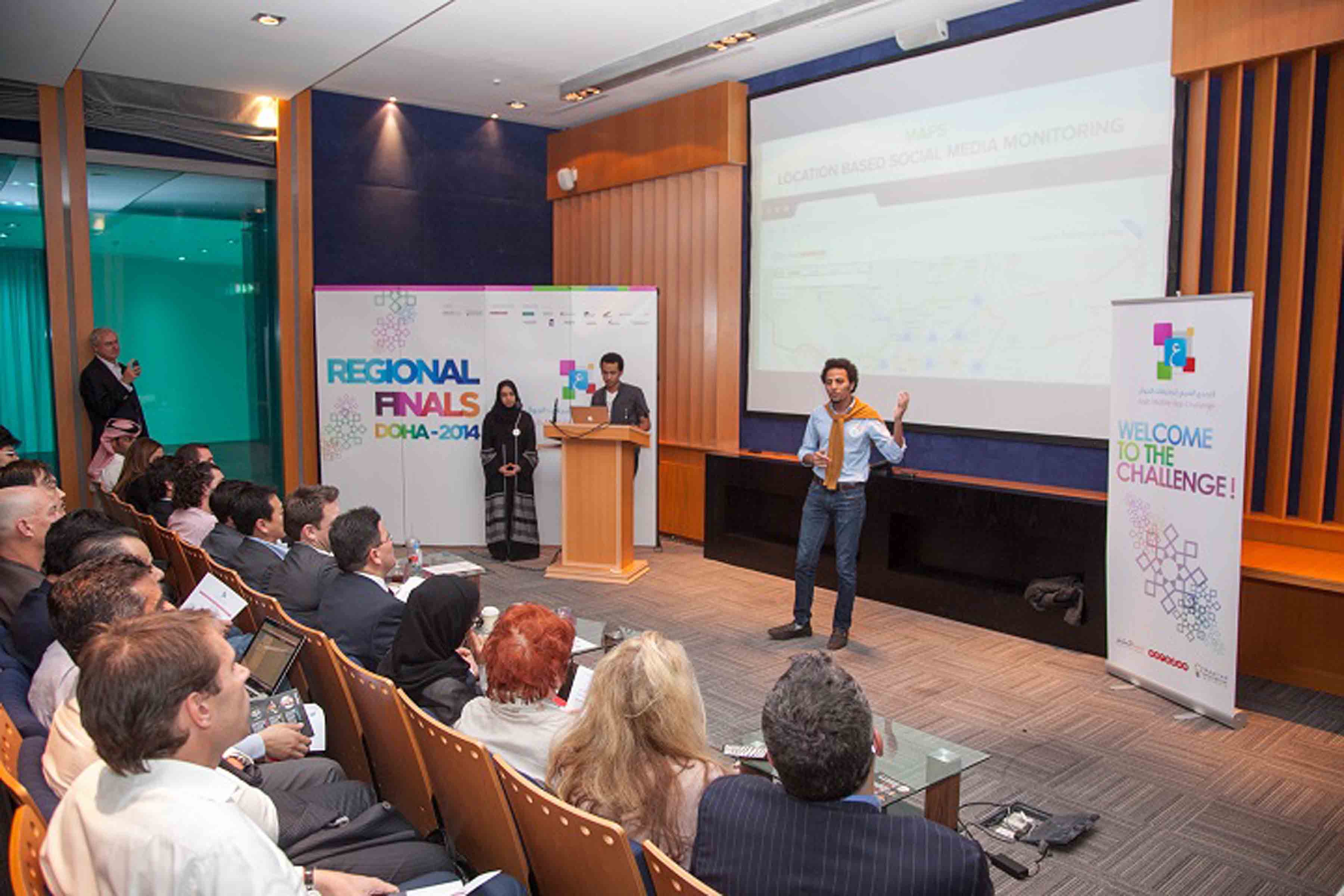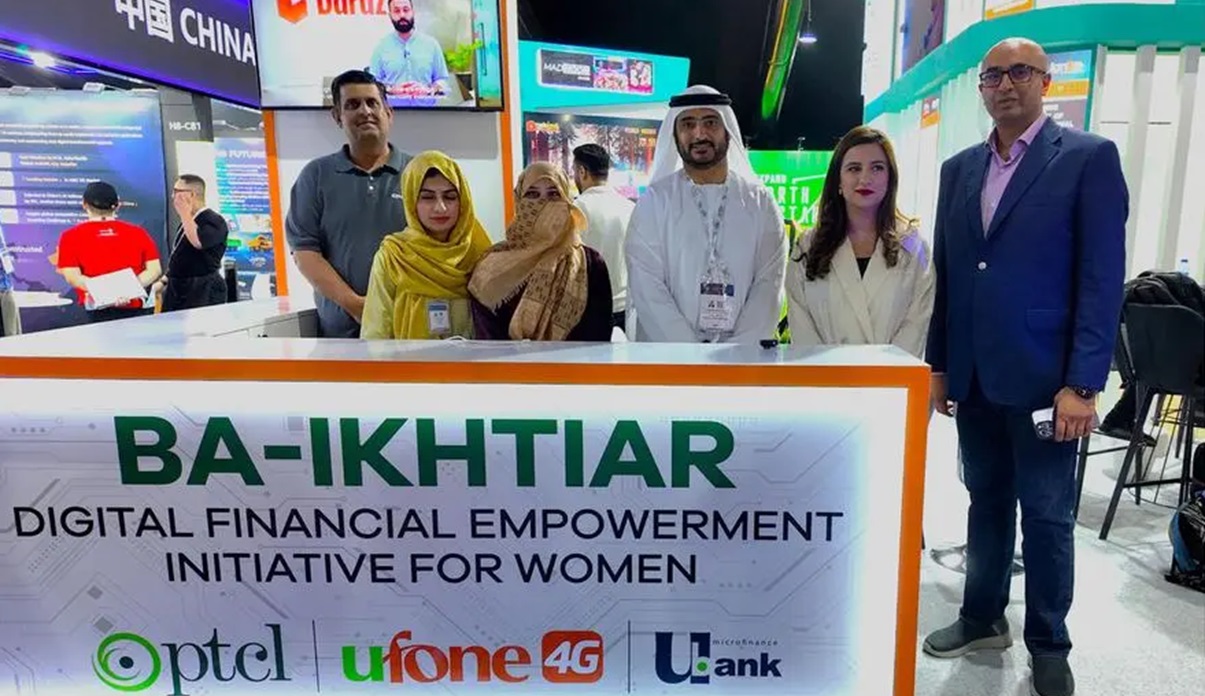Silatech, the Applied Innovation Institute, and Ooredoo have announced the winners of the first-ever Arab Mobile App Challenge, a key opportunity to promote entrepreneurship, start-up businesses, and technology-based career skills for Arab youth.
While the Arab region is already well advanced in terms of internet usage and smartphone penetration, the number of tailored and commercially-successful Arabic language apps remains scarce. The Arab Mobile App Challenge was designed to raise awareness, discover and support local talent and expand the choice of available Arabic content and applications.
At a special ceremony held at the Ooredoo headquarters in Doha, teams from across the region learned who had won the regional finals this week, as well as who will compete in the global finals to be held at the Mobile World Congress later this month.
Applicants showcased innovative ideas that impressed the jury, which included world-class experts in the field of innovation, incubation, digital media and venture capital.
Loujee, the first Arabic-speaking mobile app educational toy for children, won the grand prize of USD 50,000.
In second place was Crowd Analyzer, the first fully-automated Arabic social media monitoring platform in the Middle East and North Africa, winning USD 30,000.
Finishing third was Markabaty, which helps car owners troubleshoot problems and find car workshops, winning USD 20,000.
Starting in November 2013, more than 150 teams from Qatar, the United Arab Emirates, the Kingdom of Saudi Arabia, Jordan, and Tunisia have competed in the contest, developing mobile apps that address specific needs in education, healthcare, entrepreneurship or employability, and entertainment.
The top-ranked team from each of the five countries will now compete on the global stage at the next University Mobile Challenge at the Mobile World Congress, to be held in Barcelona at the end of February.
These teams are: ICAPS(UAE), an intelligent profile managing app; Baharat (Kingdom of Saudi Arabia), a social network for people who love to cook; EduTechnoz (Qatar), an app that provides gamification for learning Arabic; ThePen (Jordan), which improves the quality of writing on tablets; and Grant Fit (Tunisia), which adopts an Insulino++ approach for managing insulin doses.
Martin Roeske, Chief Programs Officer, Silatech, said: “We designed the Arab Mobile App Challenge as a catalyst to help develop innovative young entrepreneurs in a rapidly-expanding technology sector. Linking the teams with dedicated mentors, connecting them with entrepreneurship support organisations in each participating country, and providing them with opportunities to present their companies to potential investors are all essential components of the competition.”
In January, each of the five countries hosted a local Mobile App Challenge, and sent its three finalist teams to the regional finals in Doha, Qatar.Each team, with up to six members, all younger than 35, was matched with a mentor who provided advice on business and app design, and developing the app into a viable and sustainable business.
Silatech and the Applied Innovation Institute are the founding partners of the Arab Mobile App Challenge, with Ooredoo serving as Platinum Regional Sponsor. In Ooredoo’s markets in the Middle East and North Africa, about half of the customers are young people.
Dr. Shaikha Sultan Al Jabir, Executive Director, New Business, Ooredoo, said: “The creativity of the apps at the Arab Mobile App Challenge demonstrates the rich array of skills among youth in the region, who are solving everyday problems withmobile technology. By helping to incubate ideas and bring the winning mobile apps to market, we expect to make an impact in raising awareness to digital services for potentially millions of youth, as we seek to promote human growth and provide youth with life chances they need to succeed.”
Applied Innovation Institute Board Member Dr. Paris de l’Etraz said:“AMAC provides young people and future entrepreneurs with the means to develop their passions and project their ideas internationally. More people across the Middle East will feel empowered to develop an entrepreneurial mindset by getting out of their comfort zones, and succeeding in building an app does that for you.”
Demonstrating the potential of the mobile apps that were not selected to advance to the Mobile World Congress, a wide range of partners are incubating leading ideas from across the region.
Partner organisations of the Arab Mobile App Challenge are now playing a big role in the next steps for the participants. Some of them are focused on fast-tracking the Education apps, while others are offering the opportunity for the developers of innovative apps to go through world-class tech training.
Silatech and Ooredoo are focusing on ensuring that graduates of AMAC 2013 are exposed to the best opportunities for development, business start-up or even commercialisation where relevant. In particular, Ooredoo is already providing support to some of the participating teams and integrating them in its local incubation efforts. In Tunisia, the company is using its “Startup Factory” programme to support local app developers.
Following the success of the first Arab Mobile App Challenge, the ambition is to enrich the next edition and expand the geographic scope across the Middle East and North Africa.
Regional Partners of this year’s event include Microsoft, Pearson, Yahoo Maktoob, Tam Projects, Wamda, MIT Enterprise Forum, Potential, ArabNet, IE Business School, In5, Afkar.me, Intigral, and i360accelerator.
Country hosts were the Queen Rania Centre for Entrepreneurship (Jordan), Sup’Com (Tunisia), International Medical Centre (The Kingdom of Saudi Arabia), Impact Hub Dubai (United Arab Emirates), and Carnegie Mellon University in Qatar (Qatar).
For more information on the Arab Mobile App Challenge, visit www.arabmobilechallenge.com.





